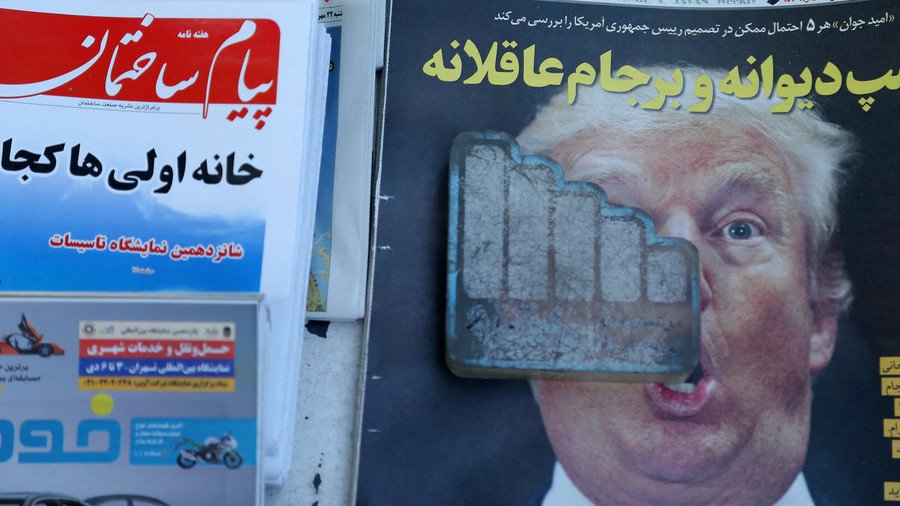Iran’s Khamenei: Muslim nations should unite against US ‘bullying’

Iran won’t tolerate “bullying” from the US and other “arrogant” powers, Supreme Leader Ayatollah Khamenei has said. He called on all Muslim nations to unite against these “enemies.”
Tehran “has successfully resisted bullying attempts by America and other arrogant powers and we will continue to resist,” Khamenei said Thursday. “All Muslim nations should stand united against America and other enemies,” he said.
Muslims should stand firmly against the U.S. and other domineering powers’ bullying. If they don’t observe that, they will be humiliated.
— Khamenei.ir (@khamenei_ir) 26 April 2018
The supreme leader’s comments follow President Donald Trump’s warning that Iran “will pay a price like few countries have ever paid” in case of any threats, lashing out against the 2015 nuclear deal which he said had “decayed foundations.”
Trump also noted that some countries in the Middle East “wouldn’t last a week” without US support, during a press conference with his French counterpart, Emmanuel Macron.
Macron said he believes a new deal with Iran should be forged, rather than the agreement being ditched altogether, with Iran’s ballistic program and regional influence covered as well. The JCPOA (Joint Comprehensive Plan of Action), which saw Tehran curb its nuclear program in exchange for the lifting of economic sanctions, is only one of four pillars. The others, Macron said, include Iran abandoning its ballistic missile development and containing its influence in Syria, Iraq and Lebanon.
'When people say President Trump is not predictable, I think the opposite, he is very predictable,' Macron stressed https://t.co/YxRbpe3GNC
— RT (@RT_com) 26 April 2018
Tehran maintains that there cannot be a “plan B” for the agreement, with Foreign Minister Javad Zarif saying recently “It’s either all or nothing.”
Russia – also a signatory to the JCPOA, along with the US, France, Germany and the UK – warned on Thursday that any changes to the deal would disrupt “a balanced mechanism, which considers interests of all parties.” Should the deal fail, it would result in “severe consequences for international security and non-proliferation,” Foreign Ministry spokeswoman Maria Zakharova said.














